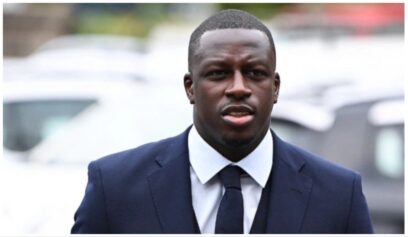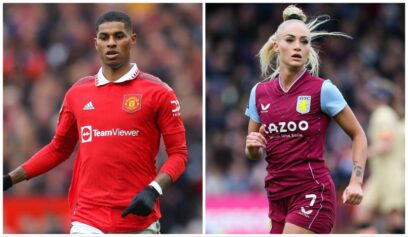Oct. 10, 2017. Five past ten. The United States had just lost a must-win match away at Trinidad and Tobago, ending the Outlaws bid to play in this summers World Cup. One of Americas best soccer color commentator appeared on ESPN rendering a harsh criticism of the national teams World Cup qualification efforts. How could a country, with these many people, this many resources, fail to even make fourth place in a group of six.
If one assumes that the national teams failure is only this generations fault, then we would be neglecting the faulty foundation that American soccer is built on. Adele Jackson-Gibson knows and understands how U.S. soccers pay to play system locks out inner city kids. She grew up in the town of Amherst, a popular suburb of Buffalo, NY. She played soccer throughout high school and played in goal at Yale University, all of which were subsidized by her parents.
I was blessed enough to have parents that could afford the club fees because it wasnt cheap, she said. To play soccer in any club, one has to pay for travel, afford to also pay outside trainers, perhaps join the Olympic Development Program, which all costs money. There are fees everywhere, she said. Its hard for certain players who are good but are from a different socio-economic background to get at least some financial aid or support to get the club where they can really develop.
If there ever is a sport, meant to resonate well with underserved communities, it is soccer. Soccer, economically, at its base, is not expensive. One just needs a ball and some cleats, which is why it is the most popular sport across the globe. The problem though is if you live in an urban area, the access to open space might not be there, Jackson-Gibson tells me. And culturally, kids just dont go play ball in the streets like they do in Brazil, she said. What they see is what they follow. Its not a bad thing, it’s just different.
More importantly, however, is how soccer has been marketed to America. Although brands and sports companies are catching up, realizing that it pays to pay attention to the needs of the black community, thereby increasing ad dollars targeting the community, soccer is lagging behind.
Growing up, the faces of soccer that I’ve seen were white women, Jackson-Gibson said. When the United States Womens National Team won the Olympics and World Cup in 1996 and 1999, setting new standards for womens soccer in the United States, Jackson-Gibson remembers Brianna Scurry being the solitary black woman in that team, mainly because she was also starting in goal as the only black player in Yales starting 11 at the time. And luck had to be on Scurrys side to make that team but she came up big for WUSA, holding the skillful women of Brazil to zip and saving a penalty against China in the final.
After the final, of course comes the marketing. The team that was presented to girls around the country were the ones that will only attract girls who look like them and a lot of those women came from the suburbs, Jackson-Gibson said. They had space and the opportunities to play.
While there just isnt the same buzz and enthusiasm around the World Cup this year, Africans, Africans in the diaspora and African Americans have refused to let the celebration of achievement and appreciation for self and culture go silent. Look no further than last months collaboration between Nike and New York-based digital media company Okay Africa, to officially unveil Nigerias dope World Cup jersey which is fast becoming a fashion phenomenon and voted the best jersey among all 32 participating countries. The jersey that was modeled by footballers Kelechi Iheanacho, Wilfred Ndidi, Alex Iwobi, African music superstars Wizkid, Not3s and Tiwa Savage, photographer Tiwa Savage, UK based and Apple Music DJ, DJ Julie Adenuga, and music mogul Grace Ladoja received 3 million pre-orders online. It sold out in just hours of its official release.
For Abiola Oke, the partnership was a no-brainer. The team at OkayAfrica were already had editorial content planned around the World Cup and as Chief Executive and Publisher of OkayAfrica, his team had facilitated a similar partnership with Nike to launch Nigerias Olympic kits a couple of years ago.
What we were able to do during the Olympics was contextualize African participation during the Olympics so it was a no-brainer to partner with Nike when they came to us, he said.
Oke heads the foremost digital media company dedicated to African culture, music, and politics made by Africans for Africans. He believes the World Cup presents an opportunity for Africans and African Americans to pull closer to each other. Black Panther, a movie which sees a futuristic Africa, and a story seeking to unite Black people, in Wakanda, a land where all black people are welcome. To now have a World Cup with African nations the talk to the town. This is the Wakanda moment for the world, Oke said.
The amazing culture that weve come from, coupled with the amazing culture weve created here as black folks in the United States, sets the stage to create this really special moment for us during the World Cup, and its fantastic to see the meshing of the cultures, whether its driving in Harlem and hearing Davido blasting from the speakers or seeing Ankara for sale for $20 on 125th street, its clear weve made strides, said TJ Adeshola, who is head of Sports League Partnerships at Twitter.
He believes there is synergy between the cultures. He has friends who ask him what their Nigerian names would be. Hes also seeing people on twitter plotting their attires and kit or changing their names to Yoruba or Igbo suffixes. And its really cool man. Its a testament to how contagious our culture is but its also a testament to it not being foreign to black America because we come from the same place, he said. When Kendrick Lamar said I got loyalty, I got royalty inside my DNA thats not specific to somebody form Compton. Thats going back to the motherland, dates back to the diaspora.
Oke even pulls the curtain a little backwards, to the slave trade era, which severed the connection between Africa and African Americans who became involuntary immigrants, then going through the war on drugs, redlining along with police brutality and enduring a myriad discriminatory policies enforced by a brutal law enforcement system. All these things, continue to keep the black population behind in the United State and in the face of that, African Americans have continued to thrive.
Up until recently, through social media and the digital revolution, the most significant moment in time of African consciousness in the diaspora, via African Americans have been through the civil rights movement and also during the birth of Pan Africanism, he said. The digital revolution, however, has enabled black people to control the narrative. Black Panther smashed global box office charts putting on display several African cultures along the way. Bozoma Saint John, who just joined Endeavor from Uber as its new CMO. Lupita Nyongo is thriving in Hollywood and as more African Americans travel the continent, were starting to realize we are as connected as ever.
Adeshola is excited to see it play out on social as well because this will be another way for us to see that it’s a global conversation and that its not just Nigerians talking about the Nike kits. This week alone, there have been over 50,000 mentions on Twitter and is sure this year will surpass 2014s 672 million tweets about the World Cup. I just need everybody to harness all that Wakanda excitement and I need you to keep the same energy when you were donning the attires for Black Panther and Wakanda, for Nigeria or any other country (participating in the World Cup) in the diaspora.



